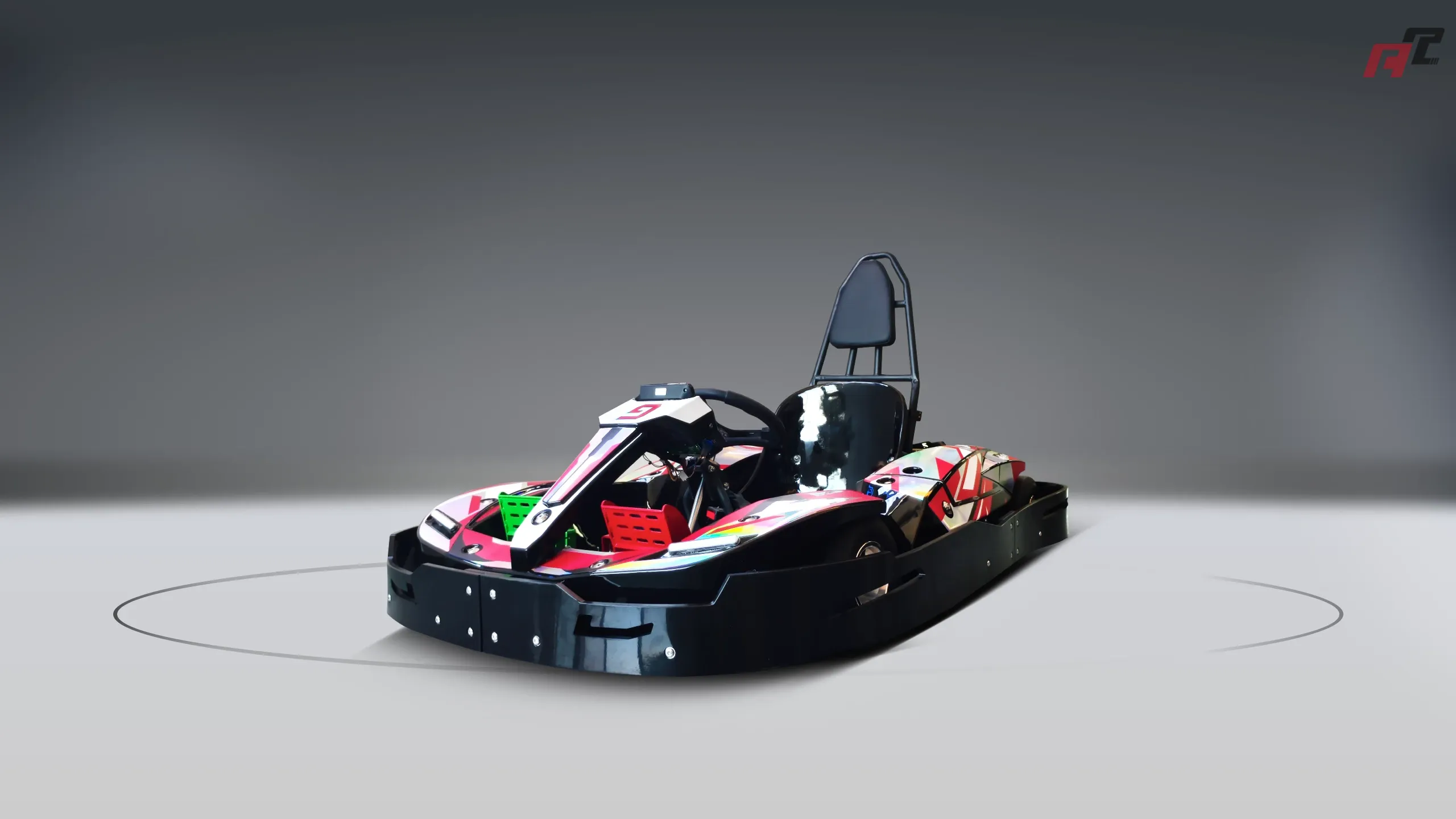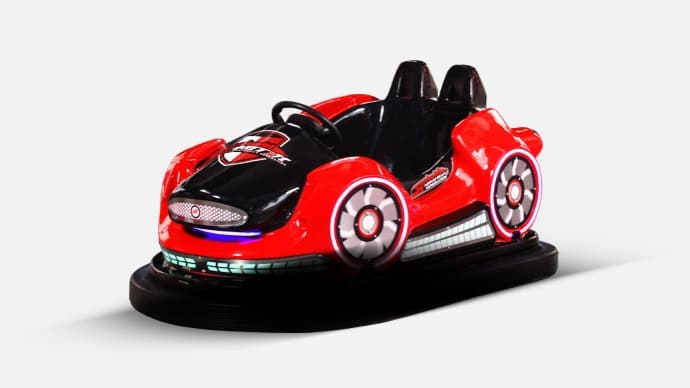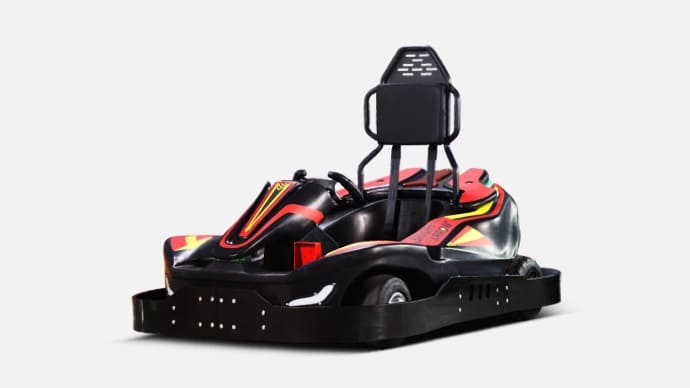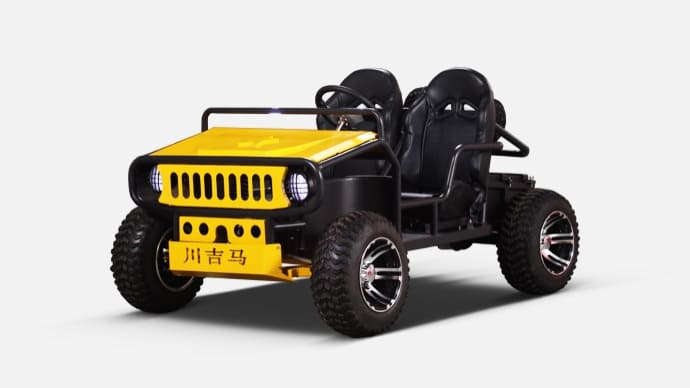الاتجاهات المستقبلية: سيارات التصادم الكهربائية والذاتية القيادة في الحدائق
- مقدمة: لماذا تُعدّ السيارات ذاتية القيادة والسيارات التي تعمل بالبطارية مهمة؟
- نظرة عامة على الاتجاهات وأهمية الكلمات الرئيسية
- محركات السوق: الضيوف، والاستدامة، والكفاءة التشغيلية
- توقعات الضيوف وتجاربهم
- الاستدامة والضغط البيئي
- الكفاءة التشغيلية والمرونة
- تقنيات البطاريات لسيارات التصادم: اختيار مجموعة نقل الحركة المناسبة
- نظرة عامة على كيمياء البطاريات الشائعة
- مقارنة: بطاريات الرصاص الحمضية مقابل بطاريات الليثيوم أيون مقابل بطاريات LiFePO4
- التقنيات المستقلة: ما يمكن للحدائق نشره اليوم
- أجهزة الاستشعار والأنظمة الأساسية
- الأوضاع التشغيلية التي تتيحها الاستقلالية
- تنفيذات السلامة أولاً
- معايير التصميم والسلامة لسيارات التصادم ذاتية القيادة التي تعمل بالبطارية
- أفضل الممارسات الهندسية
- إجراءات السلامة التشغيلية
- الصيانة والبنية التحتية للشحن ووقت التشغيل
- استراتيجيات الشحن وتصميم المستودعات
- المراقبة عن بعد والصيانة التنبؤية
- نماذج الأعمال والعائد على الاستثمار: كيف يمكن للمنتزهات تحقيق الربح من الميزات الجديدة
- زيادة الإيرادات من الميزات الجديدة
- اعتبارات التكلفة وعوامل الاسترداد
- كيف تدعم شركة ANCHI Amusement المتنزهات من خلال بناء مناطق جذب حديثة لسيارات التصادم التي تعمل بالبطاريات
- قدرات الشركة المصنعة والخدمات الجاهزة
- محفظة المنتجات متوافقة مع الاتجاهات
- خريطة طريق التنفيذ: من المفهوم إلى الافتتاح
- قائمة التحقق خطوة بخطوة
- مقاييس لتتبع ما بعد الإطلاق
- مقارنات الحالات: أمثلة عملية
- سيناريوهات المثال
- الأخطاء الشائعة وكيفية تجنبها
- التقليل من أهمية لوجستيات الشحن
- تخطي التحقق التنظيمي والسلامة
- الخاتمة: خطوات عملية إلى الأمام
- الملخص والخطوات التجارية التالية
- الأسئلة الشائعة: الأسئلة الأكثر شيوعًا التي تطرحها المتنزهات والمشغلون
- س1: هل سيارات الصدم التي تعمل بالبطارية آمنة مقارنة بالأنظمة السلكية التقليدية؟
- س2: ما هو نوع البطارية الأفضل لسيارات الصدم التجارية؟
- س3: ما هي المدة التي تعمل بها سيارات الصدم التي تعمل بالبطارية بين الشحنات؟
- س4: هل يمكن تركيب سيارات التصادم ذاتية القيادة في الساحات الحالية؟
- س5: كيف يمكنني الحصول على حل جاهز وتصميم المكان؟
- س6: ما هي الخطوات الأولى لقيادة سيارات الصدم ذاتية القيادة؟
مقدمة: لماذا تُعدّ السيارات ذاتية القيادة والسيارات التي تعمل بالبطارية مهمة؟
نظرة عامة على الاتجاهات وأهمية الكلمات الرئيسية
يتوقع زوار مدينة الملاهي اليوم التجديد والاستدامة وتجربة سلسة. دمج ميزات القيادة الذاتية وتقنيات البطاريات الحديثة فيسيارة الصدمتُنشئ هذه الألعاب ألعابًا أكثر هدوءًا ونظافةً وجاذبية. بالنسبة للمنتزهات والمشغلين، يؤثر اختيار التصميم المناسب لسيارات التصادم التي تعمل بالبطارية بشكل مباشر على مدة التشغيل وتكاليف الصيانة ورضا الضيوف.
محركات السوق: الضيوف، والاستدامة، والكفاءة التشغيلية
توقعات الضيوف وتجاربهم
يُقدّر ضيوف اليوم التفاعل والتجارب الجديدة. السلوكيات المستقلة (مثل المناطق القابلة للبرمجة، وأنماط الأهداف المدعومة بالذكاء الاصطناعي، أو التصميم الذكي) جنبًا إلى جنب مع البطاريةسيارات الصدمتوفير معالم جذب جديدة دون تغييرات جذرية في البنية التحتية. تدعم هذه الميزات تكرار الزيارات وزيادة الإنفاق لكل ضيف.
الاستدامة والضغط البيئي
تُقلل سيارات التصادم التي تعمل بالبطاريات الانبعاثات المحلية، وتُخفّض الضوضاء، وتتماشى مع أهداف الاستدامة التي تتبناها العديد من الحدائق العامة حاليًا. وغالبًا ما يُساعد التحول من الأنظمة السلكية أو التي تعمل بالوقود الأحفوري إلى أنظمة البطاريات الحديثة الحدائق العامة على تحقيق أهداف الاستدامة البلدية أو المؤسسية.
الكفاءة التشغيلية والمرونة
تُسهّل سيارات التصادم التي تعمل بالبطاريات إعادة تصميم تصميماتها، ونشرها في الحدائق الموسمية، وصيانةً مُبسّطةً مقارنةً بالطرازات المُرتبطة. كما تُقلّل الأنظمة ذاتية القيادة من الحاجة إلى طاقم عمل مُختصّ بالتحكم في الركوب، وتُتيح إدارةً ديناميكيةً للسعة خلال فترات الذروة.
تقنيات البطاريات لسيارات التصادم: اختيار مجموعة نقل الحركة المناسبة
نظرة عامة على كيمياء البطاريات الشائعة
ثلاثة أنواع من بطاريات السيارات هي الأكثر أهمية: الرصاص الحمضي (بما في ذلك AGM)، والليثيوم أيون (NMC/NCA)، وفوسفات حديد الليثيوم (LiFePO4). لكل منها مزايا وعيوب في التكلفة، وعمر دورة الحياة، والوزن، والسلامة، والصيانة، مما يؤثر بشكل مباشر على التكلفة الإجمالية لامتلاك سيارات التصادم التي تعمل بالبطاريات.
مقارنة: بطاريات الرصاص الحمضية مقابل بطاريات الليثيوم أيون مقابل بطاريات LiFePO4
| مميزة | الرصاص الحمضي (AGM) | ليثيوم أيون (NMC/NCA) | ليثيوم فيبو 4 |
|---|---|---|---|
| دورة الحياة النموذجية | 200–500 دورة | 500–2000 دورة | 2000–5000 دورة |
| كثافة الطاقة | قليل | عالي | معتدل |
| أمان | جيد إذا تم إدارته؛ تنفيس المخاطر | يتطلب نظام إدارة بطاريات صارم؛ احتمالية حدوث هروب حراري | استقرار حراري ممتاز |
| صيانة | أعلى (فحوصات دورية) | متوسط (يتطلب نظام إدارة المباني) | قليل |
| التكلفة الأولية | قليل | أعلى | متوسط إلى مرتفع |
| وقت الشحن النموذجي | 4-8 ساعات | 1-6 ساعات (يعتمد على الشاحن) | 1-6 ساعات (يدعم الشحن السريع) |
توصية: بالنسبة لسيارات التصادم التجارية، غالبًا ما يوفر بطاريات LiFePO4 أفضل توازن بين السلامة وتكلفة دورة الحياة والأداء. تُعدّ خيارات أيونات الليثيوم جذابة حيثما يكون الوزن وكثافة الطاقة العالية عاملين مهمين، بينما تظل بطاريات الرصاص الحمضية فعالة من حيث التكلفة للتطبيقات منخفضة التكلفة أو منخفضة الاستخدام.
التقنيات المستقلة: ما يمكن للحدائق نشره اليوم
أجهزة الاستشعار والأنظمة الأساسية
تعتمد سيارات التصادم ذاتية القيادة على مزيج من أجهزة الاستشعار وأنظمة التحكم: كاميرات، وأجهزة استشعار بالموجات فوق الصوتية، ووحدات قياس القصور الذاتي (IMUs)، ومشفرات العجلات، بالإضافة إلى تقنية LiDAR بشكل متزايد لتتبع العوائق بدقة. تتيح وحدة تحكم مدمجة متينة مزودة بخاصية التكرار، ونظام إدارة أسطول مركزي، تنسيق السلوكيات، وتحديد المواقع الجغرافية، واستجابات السلامة الآلية.
الأوضاع التشغيلية التي تتيحها الاستقلالية
تتيح ميزات القيادة الذاتية أنماط قيادة جديدة: مسارات تدريب ذاتية القيادة للأطفال، وألعاب جماعية تعاونية تنسق فيها السيارات، أو تعديلات ديناميكية للصعوبة. يمكن للمشغلين تشغيل أنماط قيادة هجينة حيث يوجه السائقون السيارة بينما يمنع نظام المساعدة الاصطدامات أو يتحكم بالسرعة ضمن مناطق آمنة، مما يُحسّن الشمولية والسلامة.
تنفيذات السلامة أولاً
السلامة هي الأهم. يجب أن تتضمن سيارات التصادم ذاتية القيادة أنظمة كبح احتياطية، وأسوارًا جغرافية واضحة المعالم، وإمكانية إيقاف طارئ، ومراقبة مستمرة لسلامتها من خلال منصة إدارة الأسطول. يُعدّ الامتثال للوائح التنظيمية واختبارات الجهات الخارجية أمرًا بالغ الأهمية قبل نشرها للجمهور.
معايير التصميم والسلامة لسيارات التصادم ذاتية القيادة التي تعمل بالبطارية
أفضل الممارسات الهندسية
ينبغي على المصممين تطبيق أنظمة إدارة البطاريات (BMS) مع موازنة الخلايا ومراقبة الحرارة؛ وأنظمة أمان على مستوى المركبة (فرملة ميكانيكية)؛ وأغطية مقاومة للاختراق للأجهزة الإلكترونية الحساسة. ويعزز العزل المائي بتصنيف IP مناسب، والمواد المقاومة للهب في حجرات البطاريات، هامش الأمان.
إجراءات السلامة التشغيلية
نفّذ عمليات تفتيش يومية باستخدام قوائم التحقق، وطبّق بروتوكولات سلامة الشحن، ودرّب الموظفين على التعامل مع أعطال البطاريات والتوقفات الطارئة. تُساعد جداول الصيانة الموثقة وأنظمة المعلومات عن بُعد المركزية التي تُسجّل سلوك المركبة على تحديد المشاكل مُبكرًا.
الصيانة والبنية التحتية للشحن ووقت التشغيل
استراتيجيات الشحن وتصميم المستودعات
ينبغي على الحدائق اختيار نموذج شحن عملي: شحن سريع بين الجولات، أو أنظمة شحن البطاريات القابلة للتبديل لضمان التشغيل المستمر. يجب أن يتضمن تصميم المستودعات التهوية، وتخطيطًا لإخماد الحرائق، ورفوف شحن آمنة. بالنسبة لمعظم سيارات التصادم التجارية، يُسهّل نظام 48 فولت أو 72 فولت المزود بمجموعات بطاريات معيارية عملية التبديل والصيانة.
المراقبة عن بعد والصيانة التنبؤية
تُمكّن تقنيات الاتصالات عن بُعد والتحليلات السحابية من إجراء صيانة مُراعية لحالة السيارة: تتبُّع حالة البطارية، وعدد دوراتها، وتيارات المحرك. تُقلّل التنبيهات التنبؤية من فترات التوقف غير المتوقعة، وتُخفّض التكاليف على المدى الطويل، مما يُحسّن تجربة العملاء من خلال زيادة توافر أساطيل سيارات التصادم التي تعمل بالبطاريات إلى أقصى حد.
نماذج الأعمال والعائد على الاستثمار: كيف يمكن للمنتزهات تحقيق الربح من الميزات الجديدة
زيادة الإيرادات من الميزات الجديدة
يمكن لأنماط القيادة الذاتية وتجارب سيارات التصادم التي تعمل بالبطاريات ذات الطابع الخاص أن تبرر أسعارًا عالية الجودة، أو تذاكر موسمية، أو إضافات دخول محددة بوقت. يزيد التسعير المتغير للجلسات عالية الطلب، أو الحجوزات الخاصة، أو التجارب ذات العلامات التجارية من إيرادات كل ضيف. يمكن أن يؤدي انخفاض البنية التحتية لأنظمة البطاريات (بدون قضبان شبكية علوية) إلى إبطاء الأعمال المدنية الأولية وتسريع وقت طرح المنتج في السوق.
اعتبارات التكلفة وعوامل الاسترداد
المتغيرات الرئيسية: التكلفة الأولية للمركبة (يؤثر تركيب البطارية الكيميائي على السعر)، وتكلفة البنية التحتية للشحن، وتدريب موظفي الصيانة، والعمر الافتراضي المتوقع للبطاريات. عادةً ما يُحقق اختيار بطارية عالية الجودة (مثل LiFePO4) عائدًا اقتصاديًا أفضل على المدى الطويل نظرًا لعمرها الافتراضي الأطول وقلة صيانتها.
كيف تدعم شركة ANCHI Amusement المتنزهات من خلال بناء مناطق جذب حديثة لسيارات التصادم التي تعمل بالبطاريات
قدرات الشركة المصنعة والخدمات الجاهزة
تُعد شركة ANCHI Amusement واحدة من الشركات الرائدة في تصنيع معدات الترفيه في الصين وتقدم حلولاً متكاملة تشمل سيارات التصادم،سيارات الكارتمركبات الطرق الوعرة، وبحث وتطوير الأنظمة، والإنتاج، والمبيعات، وخدمة ما بعد البيع. بمساحة إنتاج تزيد عن 5000 متر مربع وفريق فني يضم أكثر من 30 متخصصًا، تقدم ANCHI تصميمات مخصصة لسيارات التصادم التي تعمل بالبطاريات، وتكاملات إدارة الأساطيل، وتصميم المواقع من الفكرة إلى التنفيذ.
محفظة المنتجات متوافقة مع الاتجاهات
تشمل عروض ANCHI سيارات التصادم القابلة للنفخ، وسيارات التصادم الليزرية، وسيارات التصادم الانجرافية، ومجموعة متنوعة من سيارات الكارت التي تعمل بالبطاريات، والتي تناسب مختلف فئات الضيوف. تقدم ANCHI استشارات حول خيارات البطاريات، وميزات القيادة الذاتية، وتصميمات المستودعات، ويمكنها تقديم حلول مصممة خصيصًا لتحقيق التوازن بين تجربة الضيوف وكفاءة التشغيل. تفضل بزيارة https://www.anchiamusement.com/ لمزيد من تفاصيل المنتجات والاستفسارات.
خريطة طريق التنفيذ: من المفهوم إلى الافتتاح
قائمة التحقق خطوة بخطوة
١) تحديد أهداف الجذب (السعة، ملف تعريف الضيف، أهداف الإيرادات). ٢) اختيار منصة المركبة وكيمياء البطارية مع مراعاة مدخلات المورد. ٣) تصميم الساحة والمستودع مع مراعاة احتياجات السلامة والشحن. ٤) دمج أنظمة التحكم الذاتي واختبارها في بيئة مغلقة. ٥) تدريب موظفي التشغيل والصيانة. ٦) الإطلاق التجريبي مع المراقبة والطرح التدريجي للميزات.
مقاييس لتتبع ما بعد الإطلاق
تتبع وقت التشغيل، وعدد دورات التشغيل لكل حزمة بطارية، ومتوسط إيرادات الجلسات، ودرجات رضا العملاء، وسجلات الحوادث، وتكاليف الطاقة. تُرشد هذه المؤشرات التحسينات المتكررة وتُبرر الاستثمار المستقبلي في توسيع الأسطول أو تحديث أنظمة البطاريات.
مقارنات الحالات: أمثلة عملية
سيناريوهات المثال
| سيناريو | نظام البطارية | مستوى الحكم الذاتي | حالة الاستخدام |
|---|---|---|---|
| حديقة عائلية صغيرة | بطاريات الرصاص الحمضية أو بطاريات LiFePO4 بأسعار معقولة | مساعدة السائق (حد السرعة) | رحلات منخفضة التكلفة وموجهة للعائلة مع صيانة بسيطة |
| مركز ترفيهي حضري | مجموعات LiFePO4 المعيارية | شبه مستقل (سياج جغرافي + أوضاع مصممة خصيصًا) | إنتاجية عالية، جلسات مواضيعية، أسعار عالية الجودة |
| مدينة الملاهي الرائدة | بطاريات الليثيوم أيون عالية الكثافة أو بطاريات LiFePO4 المتقدمة | استقلالية كاملة للعروض الخاصة | جاذبية العرض، والعروض المجدولة، والمشاركة العالية للضيوف |
الأخطاء الشائعة وكيفية تجنبها
التقليل من أهمية لوجستيات الشحن
يؤدي عدم كفاية الشواحن أو سوء توجيه المستودعات إلى اختناقات مرورية. خطط لذروة الطلب، وفكّر في استبدال البطاريات إذا لزم التشغيل المستمر.
تخطي التحقق التنظيمي والسلامة
تتطلب السلوكيات المستقلة اختبارات وتوثيقًا دقيقًا للسلامة. استعن بمقيّمي سلامة خارجيين مبكرًا، وطبّق إجراءات أمان افتراضية متحفظة أثناء التشغيل العام.
الخاتمة: خطوات عملية إلى الأمام
الملخص والخطوات التجارية التالية
تُتيح تقنية سيارات التصادم التي تعمل بالبطاريات، جنبًا إلى جنب مع الأنظمة ذاتية القيادة، للمنتزهات الترفيهية أساليب إبداعية جديدة، وتأثيرًا بيئيًا أقل، ومرونة تشغيلية. بالنسبة للمشغلين، فإن البدء بأسطول تجريبي، واختيار مركبات بطاريات مرنة (يُنصح باستخدام بطاريات LiFePO4 للعديد من الاستخدامات التجارية)، والشراكة مع مصنّعين ذوي خبرة مثل ANCHI Amusement، يُقلل من المخاطر ويُسرّع من عملية النشر.
الأسئلة الشائعة: الأسئلة الأكثر شيوعًا التي تطرحها المتنزهات والمشغلون
س1: هل سيارات الصدم التي تعمل بالبطارية آمنة مقارنة بالأنظمة السلكية التقليدية؟
ج١: نعم - عند تصميمها بنظام إدارة بطاريات معتمد، وهيكل مناسب، وفرامل احتياطية، وأنظمة تحكم ذاتية مُختبرة. تُزيل أنظمة البطاريات القضبان العلوية والمخاطر المرتبطة بها، ولكنها تُضيف متطلبات شحن وسلامة للبطاريات يجب الالتزام بها.
س2: ما هو نوع البطارية الأفضل لسيارات الصدم التجارية؟
ج٢: عادةً ما يُمثل بطاريات LiFePO4 أفضل توازن بين دورة الحياة والسلامة والتكلفة الإجمالية المتوقعة للملكية. يُمكن اختيار بطاريات أيونات الليثيوم عالية الكثافة للتركيبات الحساسة للوزن، بينما يُمكن استخدام بطاريات الرصاص الحمضية للتركيبات منخفضة التكلفة أو منخفضة الاستخدام.
س3: ما هي المدة التي تعمل بها سيارات الصدم التي تعمل بالبطارية بين الشحنات؟
ج٣: تعتمد أوقات التشغيل النموذجية على سعة البطارية وتصميم المركبة؛ وتبلغ المسافات العملية عدة ساعات لكل شحنة في دورات القيادة العادية. يخطط العديد من المشغلين للشحن بين الجلسات أو يلجأون إلى تبديل البطاريات للحفاظ على التشغيل المستمر.
س4: هل يمكن تركيب سيارات التصادم ذاتية القيادة في الساحات الحالية؟
ج٤: في كثير من الحالات، نعم. يتطلب التحديث تقييم توافق هيكل السيارة، ومساحة المستودعات وأجهزة الشحن، ودمج أسوار الأمان الجغرافية، والاختبار. تعاون مع مُصنِّع ذي خبرة في مشاريع التحديث لضمان السلامة والأداء.
س5: كيف يمكنني الحصول على حل جاهز وتصميم المكان؟
ج٥: تقدم شركة أنشي للترفيه خدمات متكاملة، بدءًا من تصنيع المركبات حسب الطلب وصولًا إلى التصميم الكامل للمواقع وخدمات ما بعد البيع. تفضل بزيارة https://www.anchiamusement.com/ لمناقشة متطلبات المشروع وطلب عرض سعر.
س6: ما هي الخطوات الأولى لقيادة سيارات الصدم ذاتية القيادة؟
أ6: تحديد الأهداف ومؤشرات الأداء الرئيسية، واختيار أسطول تجريبي صغير، والشراكة مع الشركة المصنعة لوضع خطة اختبار خاضعة للرقابة، وتصميم ساحة اختبار تضع السلامة أولاً مع وجود أسوار جغرافية واضحة، وجمع البيانات التشغيلية لتحسين الأنظمة قبل النشر الكامل.
مصنعي وموردي عربات الكارت الكهربائية OEM/ODM 72v في الصين
مصنعي وموردي سيارات الكارت الكهربائية OEM/ODM بسرعة 50 ميلاً في الساعة في الصين
أفضل مصنعي وموردي ألعاب سيارات التصادم
كل ما تحتاج إلى معرفته عن أعمال عربات الكثبان الرملية الكهربائية - ANCHI
إعصار RS 2025
هل هو آمن للأطفال؟
صُمم المقعد للركاب الذين يزيد طولهم عن 1.55 متر، مما يجعله مناسبًا للمراهقين والبالغين. يضمن حزام الأمان رباعي النقاط والفرامل الهيدروليكية السلامة.
ما نوع البطارية المستخدمة؟
بطارية LiFePO4 72V20AH، معروفة بالسلامة والكفاءة وعمر الخدمة الطويل.
حول عملية التعاون
ما هي ميزات السلامة المتوفرة في معدات الألعاب الترفيهية المخصصة لك؟
السلامة هي الأهم. نحن نقدم ميزات أمان قابلة للتخصيص مثل أنظمة الحزام وآليات التوقف في حالات الطوارئ والحواجز الواقية وأدوات التحكم للمشغل المصممة لضمان سلامة الراكب والامتثال لمعايير الصناعة. تم تصميم هذه الميزات لتعزيز متعة الضيوف وراحة البال التشغيلية.
حول الخدمة المخصصة
هل هناك حد أدنى لكمية الطلب لخدمات التخصيص؟
قد تتطلب الخدمات المخصصة حدًا أدنى من الطلب استنادًا إلى احتياجاتك المحددة ونوع المنتج، يرجى استشارة فريق المبيعات لدينا للحصول على التفاصيل.
حول الخدمات اللوجستية
هل خدمات التوزيع والخدمات اللوجستية الخاصة بك موثوقة؟
نعم، نحن نتعاون مع عدد من شركات الخدمات اللوجستية المعروفة لضمان السرعة والموثوقية للخدمات اللوجستية والتوزيعية وتزويدك بتجربة توزيع مرضية.

سيارة كارت كهربائية Cyclone RS 2025 بقوة 1200 واط لمراكز الترفيه المنزلي
الإعصار RS 2025سيارة كهربائية عالية الأداء مصممة لعشاق الإثارة، ومراكز الترفيه، وشركات الترفيه التجارية. مصنوعة من هيكل ABS متين وهيكل معدني مقوى، تجمع بين القوة والأمان والسرعة لتجربة قيادة فائقة. معمحرك مثبت في المنتصف بقوة 1200 واط(تصل ذروتها إلى 3600 واط)، ونظام تحكم متقدم، وعمر طويلبطارية LiFePO₄ 72V20AHتضمن هذه الرحلة الأداء القوي والموثوقية.
سواء كان ذلك لمتنزهات الملاهي أو مناطق الألعاب أو شركات التأجير أو الاستخدام الترفيهي الشخصي، فإن Cyclone RS 2025 يوفر إثارة ومتانة لا مثيل لها.

سيارة دريفت بومبر تعمل بالبطارية مع إطار قابل للنفخ
سيارة التصادم التي تعمل بالبطارية مع إطار قابل للنفخ ومحرك تروس فولاذي 650 واط وبطارية عالية الجودة يمكن شحنها خارج السيارة، سيارة التصادم مثالية للمتنزهات الترفيهية ومراكز الترفيه العائلية، جودة البناء من أجل متعة آمنة وطويلة الأمد.

سيارة التصادم الليزرية الفضائية
اكتشف مستقبل المرح مع سيارة ANCHI Spaceship Laser Battle Bumper Car المصممة خصيصًا للباحثين عن الإثارة، توفر سيارة الأطفال هذه تجربة معركة ليزر مثيرة. سيستمتع الآباء والأطفال على حد سواء بساعات من اللعب الآمن والمثير. مثالية للحفلات أو المرح اليومي، فهي تجمع بين المتانة والتكنولوجيا المبتكرة.

سيارة أنميترز كيدز جو كارتينج الكهربائية للأطفال
أنميترز كيدز كارتينج هي سيارة كارتينج كهربائية مصممة خصيصًا للأطفال، تجمع بين الأمان والثبات وتجربة قيادة شيقة. تتيح للأطفال الاستمتاع بإثارة السرعة مع تطوير مهاراتهم في القيادة والتحكم.
© 2025 تسلية أنشي جميع الحقوق محفوظة.خصوصية|شروط|خريطة الموقع*سيتم مقاضاة أي استخدام غير مصرح به للصور.










